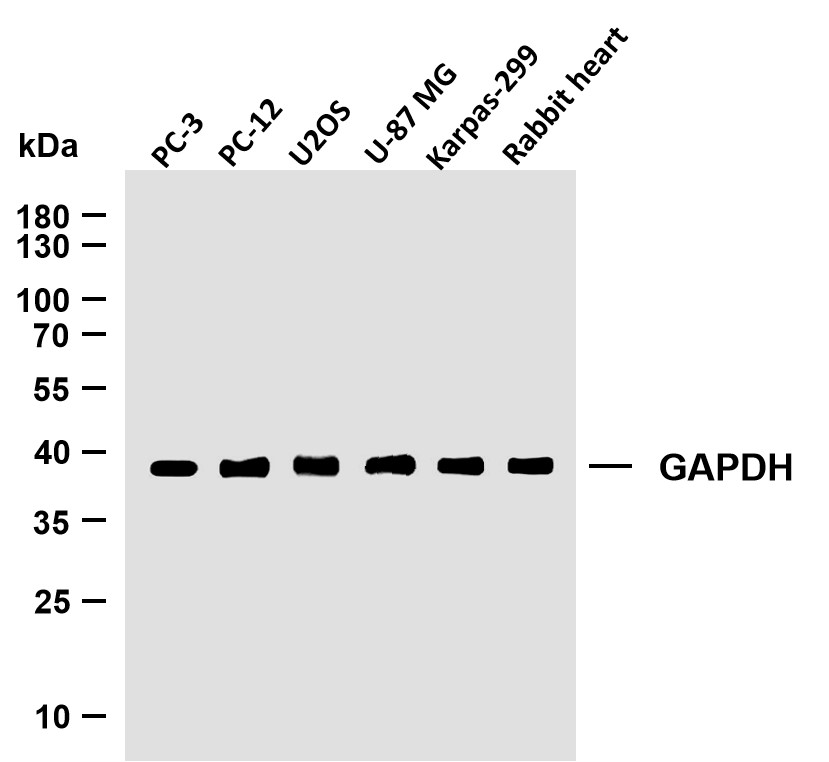
Catalog: YM6136R
Size
Price
Status
Qty.
10mL
$150.00
In stock
0
6mL
$120.00
In stock
0
3mL
$70.00
In stock
0
Add to cart


Collected


Collect
Main Information
Target
CEA
Host Species
Mouse
Reactivity
Human
Applications
IHC
Conjugate/Modification
Unmodified
Detailed Information
Recommended Dilution Ratio
Ready to use for IHC
Formulation
The prediluted ready-to-use antibody is diluted in phosphate buffer saline containing stabilizing protein and 0.05% Proclin 300
Specificity
This antibody detects endogenous levels of CEA protein.
Purification
The antibody was affinity-purified from ascites by affinity-chromatography using specific immunogen.
Storage
2°C to 8°C/1 year,Ship by ice bag
Modification
Unmodified
Clonality
Monoclonal
Clone Number
ABT004
Isotype
IgG2b,Kappa
Related Products
Antigen&Target Information
Immunogen:
Recombiant protein AA range: 35-314
show all
Specificity:
This antibody detects endogenous levels of CEA protein.
show all
Gene Name:
CEACAM5 CEA
show all
Protein Name:
Carcinoembryonic antigen-related cell adhesion molecule 5 (Carcinoembryonic antigen) (CEA) (Meconium antigen 100) (CD antigen CD66e)
show all
Other Name:
Carcinoembryonic antigen antibody ;
Carcinoembryonic antigen-related cell adhesion molecule 5 antibody ;
CD66e antibody ;
CEA antibody ;
Ceacam5 antibody ;
CEAM5_HUMAN antibody ;
DKFZp781M2392 antibody ;
Meconium antigen 100 antibody ;
OTTHUMP00000199032 antibody ;
OTTHUMP00000199033 antibody ;
OTTHUMP00000199034 antibody ;
Carcinoembryonic antigen-related cell adhesion molecule 5 antibody ;
CD66e antibody ;
CEA antibody ;
Ceacam5 antibody ;
CEAM5_HUMAN antibody ;
DKFZp781M2392 antibody ;
Meconium antigen 100 antibody ;
OTTHUMP00000199032 antibody ;
OTTHUMP00000199033 antibody ;
OTTHUMP00000199034 antibody ;
show all
Background:
This gene encodes a cell surface glycoprotein that represents the founding member of the carcinoembryonic antigen (CEA) family of proteins. The encoded protein is used as a clinical biomarker for gastrointestinal cancers and may promote tumor development through its role as a cell adhesion molecule. Additionally, the encoded protein may regulate differentiation, apoptosis, and cell polarity. This gene is present in a CEA family gene cluster on chromosome 19. Alternative splicing results in multiple transcript variants. [provided by RefSeq, Jul 2015],
show all
Function:
Function:Cell surface glycoprotein that plays a role in cell adhesion and in intracellular signaling. Receptor for E.coli Dr adhesins.,PTM:Complex immunoreactive glycoprotein with a MW of 180 kDa comprising 60% carbohydrate.,similarity:Belongs to the immunoglobulin superfamily. CEA family.,similarity:Contains 7 Ig-like (immunoglobulin-like) domains.,subunit:Homodimer. Binding of E.coli Dr adhesins leads to dissociation of the homodimer.,tissue specificity:Found in adenocarcinomas of endodermally derived digestive system epithelium and fetal colon.,
show all
Cellular Localization:
Cytoplasmic, Membranous
show all
Reference Citation({{totalcount}})
Catalog: YM6136R
Size
Price
Status
Qty.
10mL
$150.00
In stock
0
6mL
$120.00
In stock
0
3mL
$70.00
In stock
0
Add to cart


Collected


Collect
Recently Viewed Products
Clear allPRODUCTS
CUSTOMIZED
ABOUT US
Toggle night Mode
{{pinfoXq.title || ''}}
Catalog: {{pinfoXq.catalog || ''}}
Filter:
All
{{item.name}}
{{pinfo.title}}
-{{pinfo.catalog}}
Main Information
Target
{{pinfo.target}}
Reactivity
{{pinfo.react}}
Applications
{{pinfo.applicat}}
Conjugate/Modification
{{pinfo.coupling}}/{{pinfo.modific}}
MW (kDa)
{{pinfo.mwcalc}}
Host Species
{{pinfo.hostspec}}
Isotype
{{pinfo.isotype}}
Product {{index}}/{{pcount}}
Prev
Next
{{pvTitle}}
Scroll wheel zooms the picture
{{pvDescr}}



















